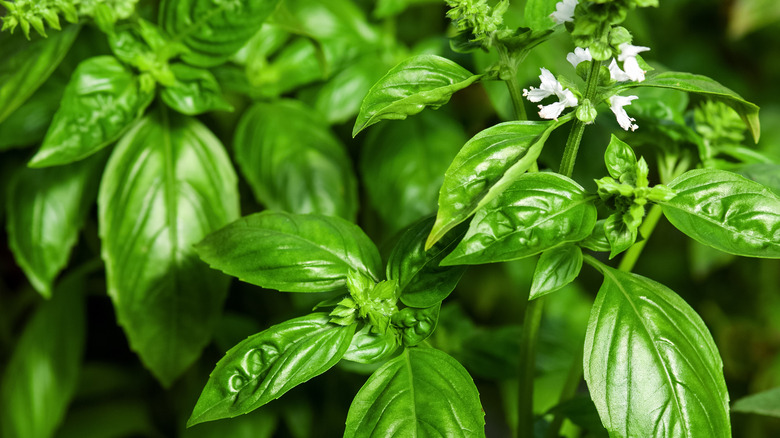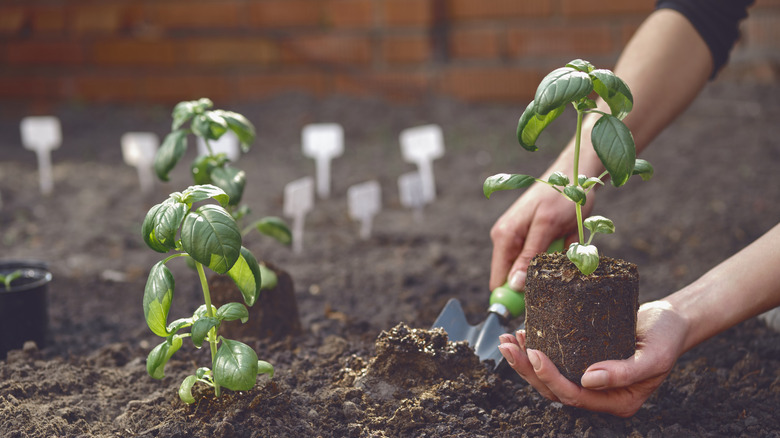Read This Before Growing Basil
Basil is one of the easiest herbs to grow at home and comes in handy in a variety of yummy recipes, whether you're whipping up some fresh pasta sauce or putting together a quick caprese salad. However, don't make the mistake of thinking that you can simply throw this plant into a pot on your kitchen windowsill and step away. There are a few things you can do to make your life easier, according to Love & Lemons.
Firstly, skip the seeds and opt for transplants. Much easier to keep alive, starter plants are usually adolescent or near-adult plants that are ready to keep growing. There's no need to sit around hoping your seeds will germinate (and, really, it's much easier to care for a plant that's already sprouted, since, you know, you can actually see it). You can find basil transplants most anywhere you shop for plants.
To keep your basil growing, remove the leaves at the stem and remove any flowers. This will ensure the plant continues producing new branches and leaves, rather than putting all its energy into growing existing leaves and flowers.
If you grow your basil outdoors, you'll want to follow a few extra tips
If you have the space outdoors, you can grow more basil over a larger plot of land, versus sticking to one pot on your windowsill, but you'll want to take a few extra precautions. Basil doesn't hold up to the cold well, so depending on where you live, you might only want to start your plants once you're well into the spring or summer. According to Bonnie Plants, you're typically safe to plant your basil transplants outdoors two weeks after the last spring frost, and you'll see the most substantial growth once the weather is consistently in the 80s or 90s.
While indoor basil plants may need to be watered more regularly, in order to keep the soil around the plant moist, you might find that your outdoor basil plants get a little extra help from the environment. If there's been frequent rain in your neck of the woods, you might not need to water them once daily, like you might during dry weather. Bonnie Plants says to water your basil plants whenever the top inch of soil around the base of the plants is dry.

